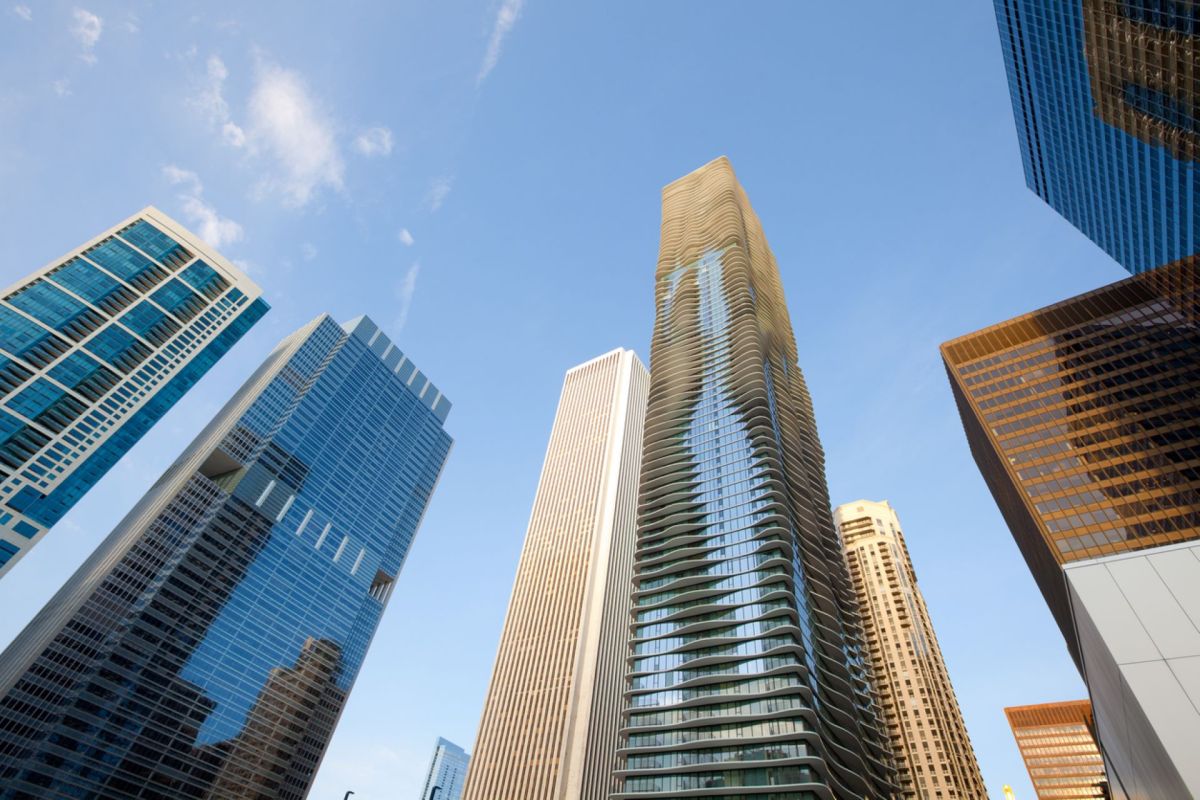Up to 1 billion birds die each year as a result of colliding with buildings, the Guardian reports. But now architects are tackling this problem with avian-friendly designs.
The materials often front and center in building design in big cities — aka that crystal clear glass — can be pretty to us but downright deadly for birds.
This glass can almost blend into the sky at certain times of the day or become so clear that it becomes imperceptible to birds. At night, brightly lit buildings can confuse birds.
In Chicago, architect Jeanne Gang designed the bird-friendly 82-story Aqua Tower, which stands apart from the city's other skyscrapers because of its undulating facade. Gang told the Guardian that the building's irregular design helps birds to see it more clearly and avoid collisions.
The publication reported that other architects are experimenting with new types of patterned or coated glass that are visible to birds. Others are rethinking glass towers altogether, experimenting with exteriors that use wood, concrete, or steel rods. Plus, some architects are making buildings homier for birds by integrating green roofs and facades where they can nest.
For example, New York City design firm FXCollaborative renovated the Jacob K. Javits Convention Center about a decade ago to make it more bird friendly. Before its redesign, it was killing 4,000 to 5,000 birds per year. Reducing the amount of glass in the building and replacing the rest with glass featuring tiny textured dots helped reduce bird kills while keeping the building cooler and reducing air conditioning costs.
Meanwhile, birdhouse bricks are another way to integrate bird-friendly practices into building design. These hollow bricks feature a small hole that provides space for birds like endangered swifts, which are in desperate need of nesting spots.
Saving our avian friends is not just a nice thing to do — it can benefit us in a number of ways. By eating up to 500 million tons of insects per year, birds control pests, including those that endanger our forests and agricultural products. They are also important pollinators — around 5% of the plants humans use for food or medicine is pollinated by birds, according to Bird Life International.
Birds like vultures also serve as "nature's clean up crew" by scavenging dead animals. This helps control dangerous diseases like rabies and tuberculosis. Some clever crows in Sweden are also cleaning up cigarette butts from the streets. The crows, which voluntarily participate, receive a small piece of food every time they deposit a cigarette butt into a machine.
Gang told the Guardian that designing bird-friendly buildings can be "liberating."
Dan Piselli, director of sustainability at FXCollaborative, told the publication: "Many people think about bird-friendly design as yet another limitation on buildings, yet another requirement. But there are so many design-forward buildings that perfectly exemplify that this doesn't have to limit your design, your freedom."
Join our free newsletter for weekly updates on the coolest innovations improving our lives and saving our planet.









